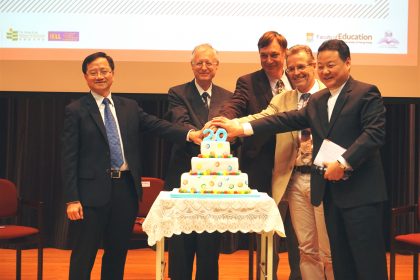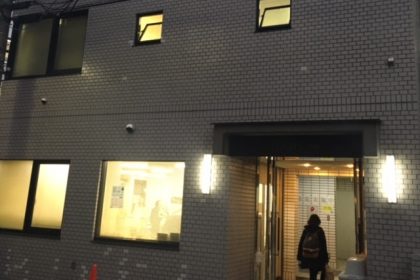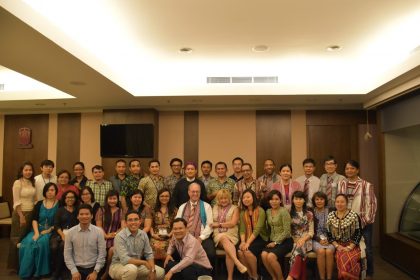Thea Zhang is from Hangzhou, China. In September 2013, she enrolled in the HKU MEd programme in Comparative and Global Studies in Education and Development (CGSED), completing at the end of August 2014. She moved to Paris to work as an intern at UNESCO Headquarters. Her work focuses on administration of the UNESCO Chairs programme. Here she shares some feelings and experiences after a month in the job.
 For many years, UNESCO was for me just a word without any concrete sense except that it had been mentioned in the textbooks and is doing something great out there for the bigger good. Then, I had the chance to come to Hong Kong for the CGSED MEd programme. Its coordinator, Prof. Mark Bray, holds the UNESCO Chair in Comparative Education. So, not surprisingly I found myself learning a lot about UNESCO.At the start, I was just idealistic (and I still am!). One time I shared with Prof. Bray some of my dreams about the world and my desire to contribute to the cause of education. He replied, nicely of course: “You are still young, and should go out to experience the world.” And then he introduced me to Paulina Gonzales-Pose who is my supervisor now at UNESCO. Somehow, I find myself in this internship – it just happened!
For many years, UNESCO was for me just a word without any concrete sense except that it had been mentioned in the textbooks and is doing something great out there for the bigger good. Then, I had the chance to come to Hong Kong for the CGSED MEd programme. Its coordinator, Prof. Mark Bray, holds the UNESCO Chair in Comparative Education. So, not surprisingly I found myself learning a lot about UNESCO.At the start, I was just idealistic (and I still am!). One time I shared with Prof. Bray some of my dreams about the world and my desire to contribute to the cause of education. He replied, nicely of course: “You are still young, and should go out to experience the world.” And then he introduced me to Paulina Gonzales-Pose who is my supervisor now at UNESCO. Somehow, I find myself in this internship – it just happened!
I have so much that I could share. But my priority here is my new understanding about “means and ends”.
Before arriving in Paris I thought that being a part of UNESCO meant that I would be sitting in important conferences, helping with educational policy design and evaluation, and selecting and renewing UNESCO Chairs. Indeed I am doing some of that. I attend meetings with my intern buddies, or sit in my office and listen on the intranet to the interpreters’ version of them. And I have been entrusted with the UNESCO Chairs database which might be the core of the programme. However, most of my daily routine is about the “small things”.
For the old me, this would have been a disappointment. But the “me” at this moment is happier than ever before. I realize that I will always be the girl who writes long emails to friends and teachers about dreams and doubts; I will always be the girl who believes in the power of education; and I will always be the girl who has faith in UNESCO and related bodies even though they are bureaucratic and slow. The “imperfection of the system” pushes me to do something about it, even though my contribution will be small. I also learned that being true to my dreams does not mean that I have to be stubborn. Instead, as long as I am true to myself and keep the big picture in mind, I will still do some good.
So, what is my summary of moving from the academic environment of the HKU MEd programme to the real world of international work? It is: not quite what I expected, yet very rewarding in a different way.
And maybe next time I will tell you about Paris….
















